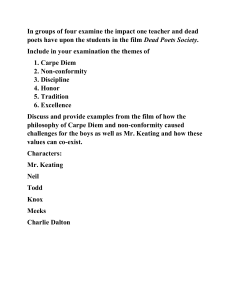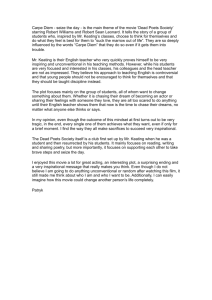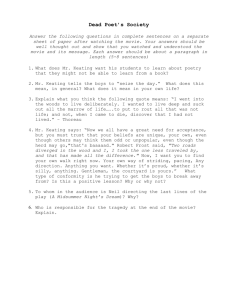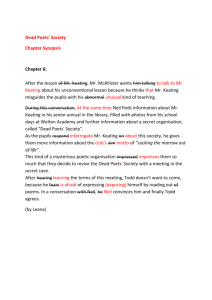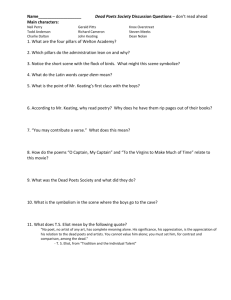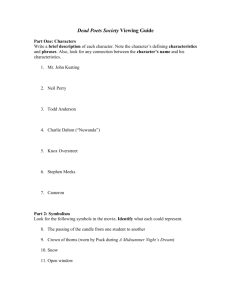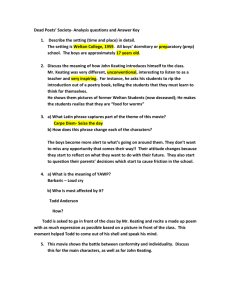Homework Task 1 _ DPS
advertisement
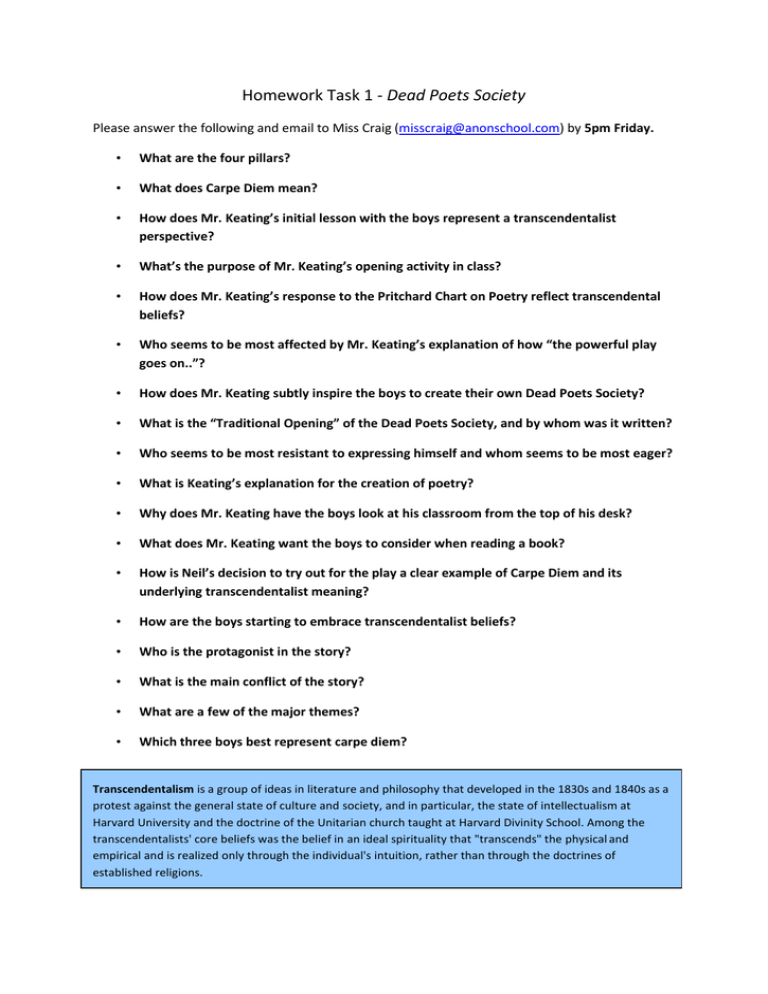
Homework Task 1 - Dead Poets Society Please answer the following and email to Miss Craig (misscraig@anonschool.com) by 5pm Friday. • What are the four pillars? • What does Carpe Diem mean? • How does Mr. Keating’s initial lesson with the boys represent a transcendentalist perspective? • What’s the purpose of Mr. Keating’s opening activity in class? • How does Mr. Keating’s response to the Pritchard Chart on Poetry reflect transcendental beliefs? • Who seems to be most affected by Mr. Keating’s explanation of how “the powerful play goes on..”? • How does Mr. Keating subtly inspire the boys to create their own Dead Poets Society? • What is the “Traditional Opening” of the Dead Poets Society, and by whom was it written? • Who seems to be most resistant to expressing himself and whom seems to be most eager? • What is Keating’s explanation for the creation of poetry? • Why does Mr. Keating have the boys look at his classroom from the top of his desk? • What does Mr. Keating want the boys to consider when reading a book? • How is Neil’s decision to try out for the play a clear example of Carpe Diem and its underlying transcendentalist meaning? • How are the boys starting to embrace transcendentalist beliefs? • Who is the protagonist in the story? • What is the main conflict of the story? • What are a few of the major themes? • Which three boys best represent carpe diem? Transcendentalism is a group of ideas in literature and philosophy that developed in the 1830s and 1840s as a protest against the general state of culture and society, and in particular, the state of intellectualism at Harvard University and the doctrine of the Unitarian church taught at Harvard Divinity School. Among the transcendentalists' core beliefs was the belief in an ideal spirituality that "transcends" the physical and empirical and is realized only through the individual's intuition, rather than through the doctrines of established religions.
